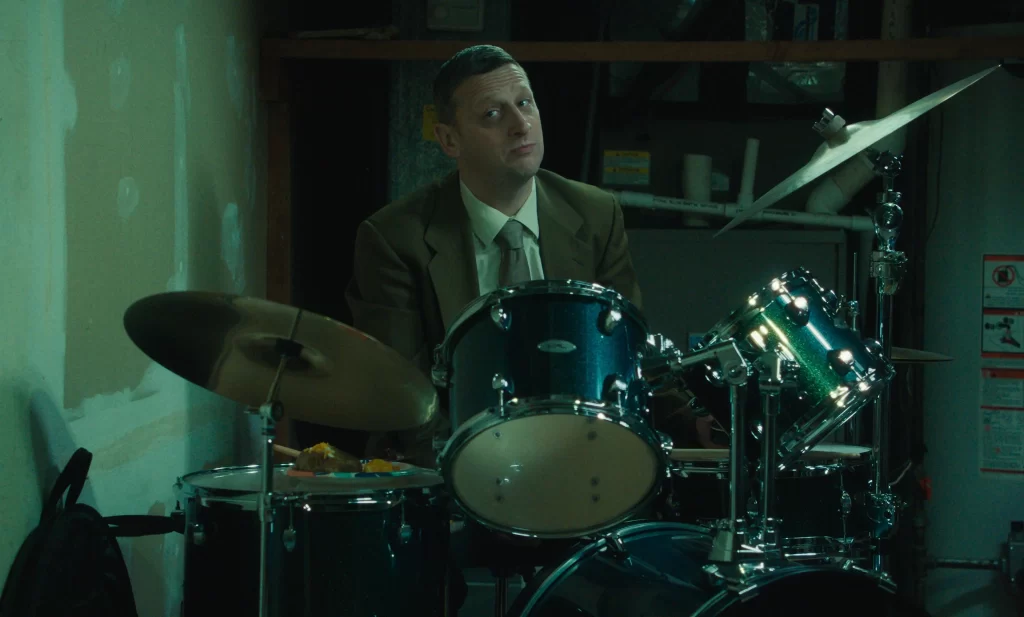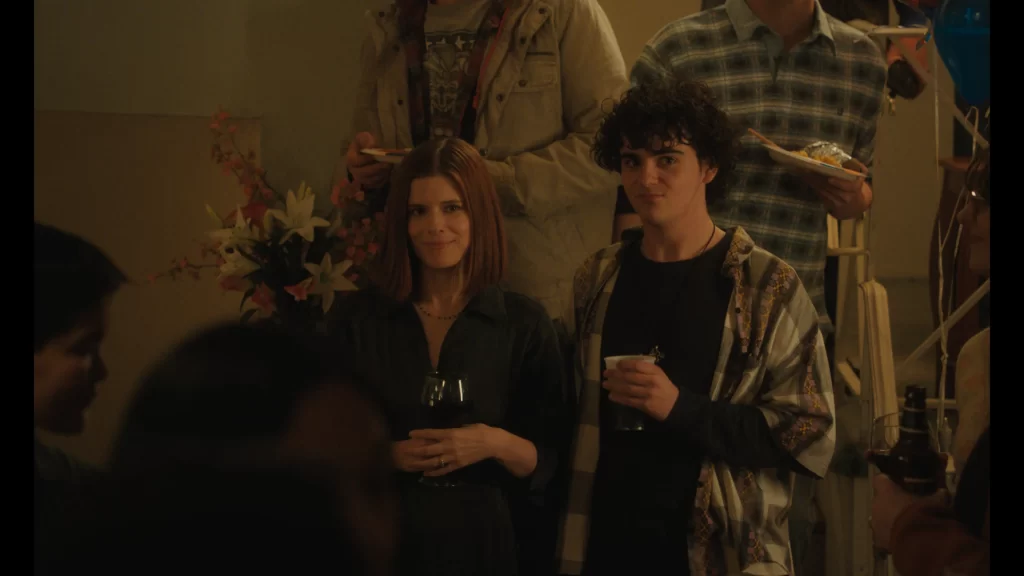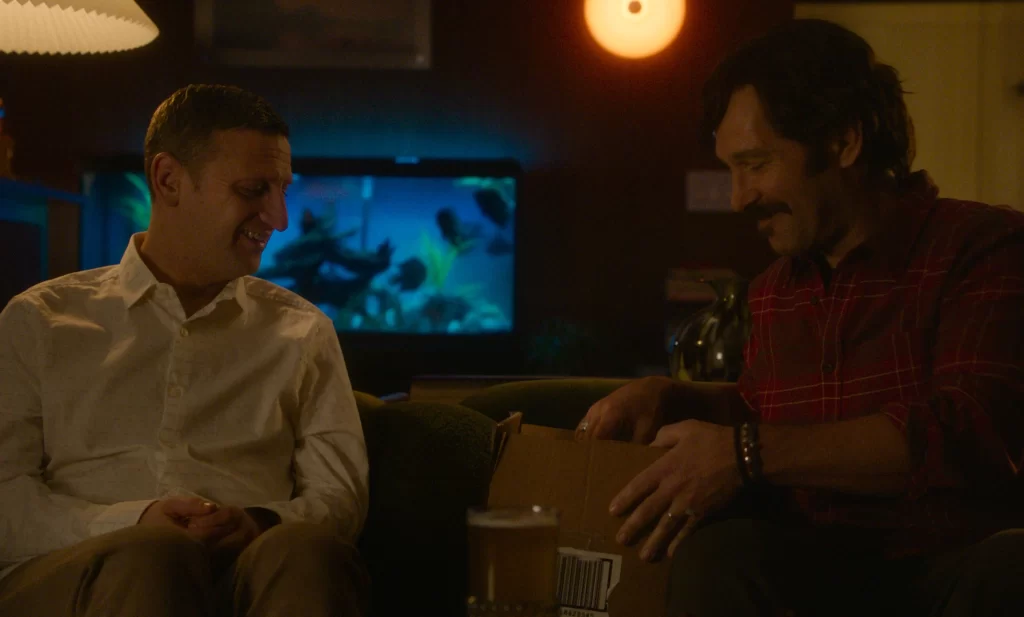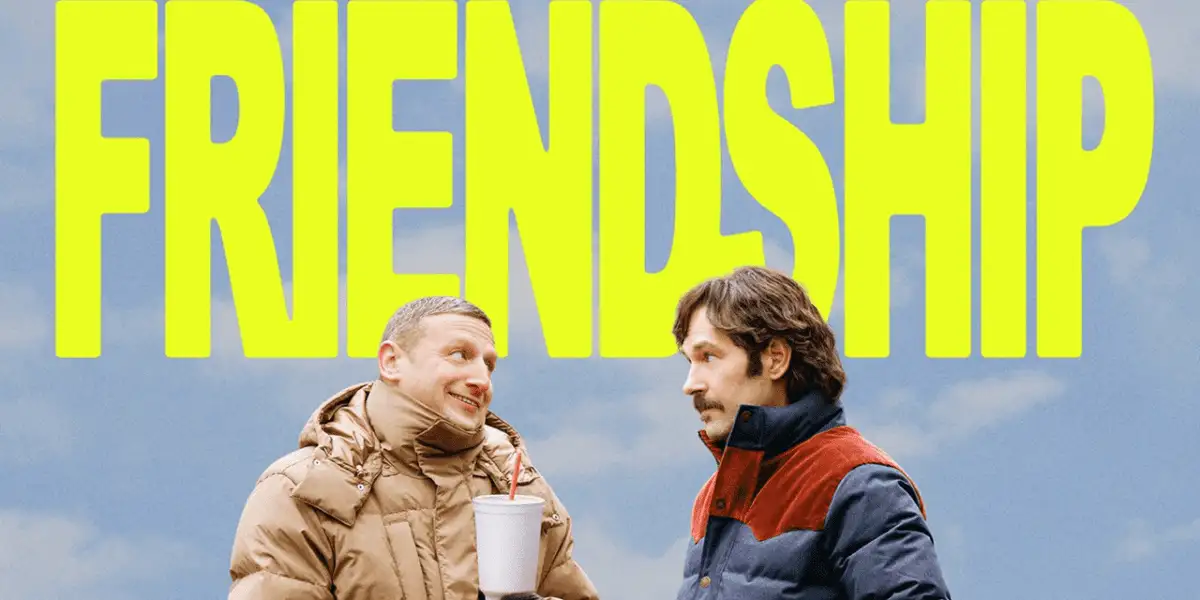Friendship Film Review: Andrew DeYoung’s Directorial Debut is More than “Just” a Comedy
Friendship Film Review | I haven’t laughed this hard in a theatre in years.
After missing its TIFF premiere (had to choose between Friendship and chatting with Hugh Grant on the Heretic red carpet), and then missing it again at SXSW, I finally caught Friendship at the Calgary Underground Film Festival, where it opened to a packed house. And it was worth the wait. Friendship is the feature debut from Andrew DeYoung, a name that might not yet ring out beyond television and short-form comedy circles, but he is now well on his way.
What Is Friendship About?

Friendship centres on Craig (played by Tim Robinson, in peak form), a suburban dad and app developer who seems to be drifting through life in a fog of routine and low-level despair. That fog begins to lift when a new neighbour moves in next door. Austin, played by Paul Rudd, is everything Craig is not: magnetic, casual, instantly likable. From their very first interaction, Craig decides this man will be his best friend, and what unfolds is part obsessive pursuit, part existential spiral.
It’s awkward. It’s absurd. And it is very, very funny.
Peak Tim Robinson
If you’re a fan of “I Think You Should Leave”, you’ll immediately recognize the brand of comedy on offer. Friendship often feels like a 90-minute deep dive into one of Robinson’s most painful, absurdist characters. That might sound like a gamble, but it pays off. Because we’re locked in with Craig for the full runtime, the character gains more nuance and pathos than anything you’d get in a five-minute sketch. He’s not just cringe-inducing – he’s hollowed out, lonely, and deeply in need of connection.
This is Robinson at his most affecting. We laugh at Craig, certainly – but also for him, and occasionally, with him.
Paul Rudd and Kate Mara Round Out the Spiral

Paul Rudd is another perfect casting choice as Austin. He’s effortlessly charming, and, on the surface at least, delivers every line with the breezy confidence of someone who doesn’t need to try – and that’s exactly what drives Craig mad. Austin is the kind of guy people naturally orbit, and Rudd plays him with just enough humanity to avoid tipping into caricature.
Kate Mara plays Craig’s wife, Tammy, bringing a much-needed groundedness. Her performance is more subtle, but still effective – a woman who’s lived with this version of Craig for years and has learned to manage his peculiarities with a mix of exhaustion and grace. It’s a reminder that the cost of male repression often lands hardest on those closest to it.
Mara, notably, has been everywhere this year – Friendship was just one of three films she brought to SXSW (The Dutchman, The Astronaut, and of course, Friendship) – and while her performance here may be the most understated of the trio, it is still incredibly effective.
The Cinematography of Friendship

Ultimately, one of the key areas where Friendship truly sets itself apart from other comedies is with its cinematography. It is gorgeous. Shot by Andy Rydzewski, the film plays visually like a character study, not a comedy. Muted colours, overcast skies, and shallow depth of field all serve to reinforce Craig’s shrinking world and interior claustrophobia. The framing often leaves him just slightly off-centre – a man out of alignment with the world around him.
Director Andrew DeYoung has spoken openly about his visual influences, citing The Master as a key inspiration. It’s an unexpected comparison, but not an unfounded one. Both films use the camera to externalize the inner pathology of our characters. As Craig’s grip on reality starts to loosen, the cinematography bends to reflect that state of mind.
Even the lighting skews naturalistic, relying on practical sources that heighten the mundanity of Craig’s world, making his increasingly erratic behaviour feel all the more dissonant.
Beneath the Laughter: Male Loneliness, Repression, and Identity Crisis
While Friendship is undoubtedly a comedy – possibly one of the funniest in recent memory – it also sneaks in some heavier thematic material. DeYoung doesn’t hit these points too hard (and wisely so), but the film is undeniably interested in male loneliness, emotional repression, and the search for identity through imitation. Craig isn’t just awkward – he’s lost. And rather than change himself, he attempts to become someone else.
That idea is mirrored in his job: he designs apps engineered to make people addicted, seduced by simulated connection. It’s a fitting metaphor for the artificial relationships he keeps trying to manufacture in his personal life.
Still, let’s not over-intellectualize it – Friendship is at its best when it makes us laugh (which is often). Still, the thematic scaffolding underneath gives the whole thing another worthwhile layer.
It’s clear that this role was written specifically for Tim Robinson – because it was. DeYoung and Robinson are personal friends, and when the script was finished, DeYoung simply sent it to him with no hard sell. Robinson, who rarely works on projects outside his own orbit, read it and was on board almost immediately. That kind of creative trust speaks volumes – and it shows in the final product.
Final Thoughts: Friendship Film Review

At the end of the day, Friendship is just flat-out funny. Not every joke will land for everyone, but if Robinson’s brand of escalating absurdism works for you, this one’s a no-brainer. What elevates it, though, is the care with which it was made – from the writing to the cinematography to performances – everything is intentional and effective.
It may not reinvent the comedy genre, but it’s certainly a standout. And when you’re laughing so hard you miss the next line of dialogue, which was the case for me at CUFF, that’s more than enough. | Friendship Film Review




